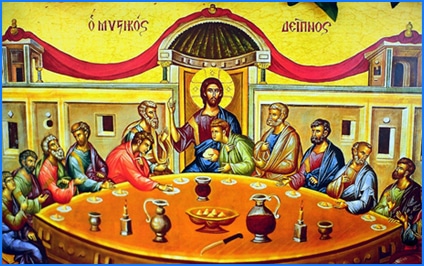
Childhood Obesity News has remarked on how some things will never change, one of them being the human tendency to celebrate happy occasions with food and drink. In the human psyche, good times are inseparable from feasting. That’s okay, as long as the interests of the kids are considered.
Holidays can have bad effects, and it’s urgently important to be aware of this. Just think back to the most recent set of winter festivities. Some children probably acquired emotional scars that will never go away, and many feel even worse about themselves than they did last year, because now the old BMI has crept even closer to the danger zone.
Many people are sensitive to the difficulties encountered by a recovering alcoholic during the holiday season, when there is more bottled cheer in circulation than ever. But what about the food? Few people realize the ordeal a season of merrymaking can be for a health-conscious person who doesn’t want to backslide.
The situation is even worse for an overweight or obese child, who doesn’t even know any better, but who suddenly finds a world overflowing with candy, cookies, sugar-sweetened beverages, and rich dinners. Every holiday is a trip to Temptationville.
Another thing that won’t change is the food-as-hospitality equation, which is so enmeshed in all our relationships, it might as well be called an instinct. When somebody visits, we show how glad we are to see them by offering a yummy treat. It’s a beautiful human impulse, and it can complicate the lives of parents and children even more.
When Jamie Oliver went to Huntington, WV, he was accompanied by The New York Times Magazine staff writer Alex Witchel, who reported on the speech Oliver made to the local inhabitants:
We’re going to spend the next few days getting under the skin of the problem, and we’re asking families, individuals, schools and churches to spread the word… It’s about finding local ambassadors for change.
With regard to churches, this sounds like a noble but probably impractical idea. Sure, some denominations, like Seventh-Day Adventists, are way out ahead on the healthy eating concept. Other denominations depend heavily on hyperpalatable food to convey their message of welcome. There is nothing wrong with that, but it is something to be aware of, and to work around.
To describe one particular church at random, every Sunday between the two services, coffee and doughnuts are available. The numerous potluck events are dazzling displays of good old-fashioned home-cooking. When the teachers of the attached preschool meet with the parents, plates of goodies practically cover every level surface. Even for the adult education classes, somebody often brings a snack to share. Temptation, temptation. Many churches are, unfortunately, part of the problem — but would their parishioners really want them to change?
Much has been said about what a source of junk food a school can be. Even if the cafeteria fare is nutritionally excellent, even if unhealthy home-packed lunches are banned, and vending machines banished, it appears that any attempt to more strictly regulate is just asking for trouble. For example, Teresa Watanabe reported for the L.A. Times on the rise of black markets in the Southern California megalopolis:
For many students, L.A. Unified’s trailblazing introduction of healthful school lunches has been a flop… Participation in the school lunch program has dropped by thousands of students… At many campuses, an underground market for chips, candy, fast-food burgers and other taboo fare is thriving.
Your responses and feedback are welcome!
Source: “Putting America’s Diet on a Diet,” JamieOliver.com, 09/10/09
Source: “L.A. schools’ healthful lunch menu panned by students,” LATimes.com, 12/17/11
Image by Steve Snodgrass, used under its Creative Commons license.

 FAQs and Media Requests:
FAQs and Media Requests: 











